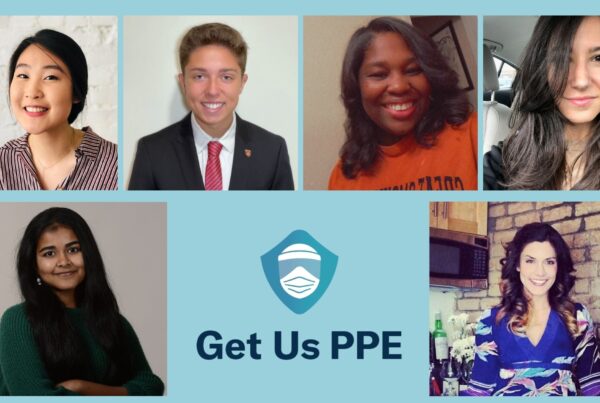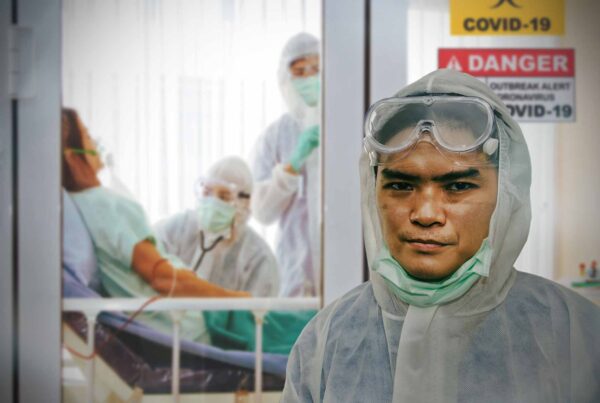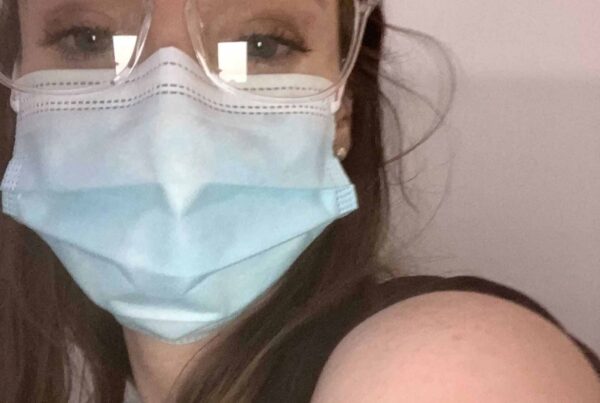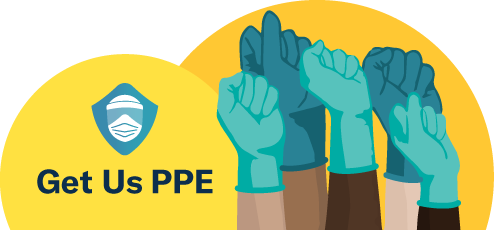By Varsha Venkatakrishna, a medical student in NYC and the Advocacy Communications Lead at GetUsPPE.org.
As U.S. healthcare workers braced for the impact of COVID-19, the nation’s medical students took it upon themselves to find ways to support the relief response. As their classes and rotations moved online, medical students found themselves amidst a global health crisis with free time, clinical skills, and hunger to support their colleagues on the front lines. Unfortunately, most medical students were largely restricted from patient contact amid fears of exacerbating the existing PPE shortage. This wouldn’t stop student efforts, however.
Despite the abrupt break in their education and not having access to patients, quarantined medical students came together in an incredible response to the nation’s crisis, organizing grassroots efforts to deliver PPE to hospitals, provide child and pet care, and engage in advocacy. Medical student volunteers have bolstered medical supply chains and eased administrative gaps, cementing their role as a vital resource in the COVID-19 response.
Leveraging social media in a time of social distancing, many medical students have organized through publicly accessible Slack channels. One popular channel, Med Students vs. COVID-19, connects students from across the country, providing a unified platform for sharing grassroots organizing toolkits, updates on medical guidelines, and support for fellow medical students’ health and wellness. Local Slack channels quickly followed, including COVID Rapid Response Team Chicago, which focuses on local advocacy campaigns and mobilizing regional volunteer efforts.
Other medical students turned to classmates, forming campus-wide PPE initiatives to support their schools’ hospital networks. At New York’s Touro College of Osteopathic Medicine, third-year students founded Behind Our Heroes, delivering 18,000 N95 respirators, 5,400 surgical masks, and 3,840 hand sanitizers to over ten community hospitals within a month.
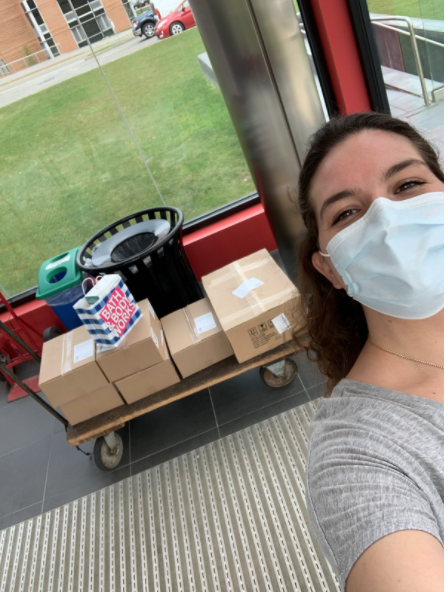
Photo credit: Behind Our Heroes. Third-year medical student Nora Martini stands in front of PPE donations for a hospital in Brooklyn, New York.
“It was hard for us as medical students to be taken out of rotations, sure, but I think for a lot of us the hardest part was not being able to do something to help these people who are our personal heroes,” says Nora Martini, a third-year medical student at TouroCOM, “Working with Behind Our Heroes has been so rewarding because while we’re not out on the front-lines, we can in a small way help protect those who are.”
MedPath is another PPE initiative led by first-year medical students in NYC. MedPath has creatively sourced PPE from local tattoo parlors, construction companies, nail salons, and artists, and has equitably donated this equipment to community hospitals with vulnerable patient populations. Additionally, MedPath has organized fundraisers to support local hospitals as well.
“I feel an overwhelming sense of frustration that the people who are fighting the hardest against COVID-19 are the ones who are least prepared,” says MedPath Co-Founder Ritesh Akkisetty, “Through MedPath, I can feel that I’ve made some contribution towards providing these heroes with the support they deserve.”
At University of Michigan’s medical school, first-year Jiwon Park has helped coordinate virtual medical and psychological evaluations for asylum seekers and advocated for the release of undocumented immigrants from detention centers. In her words, Park was motivated to act after seeing how “the COVID-19 pandemic unveiled the many disparities in healthcare and created disproportionate effects on vulnerable populations.”
Some fourth-year medical students have been offered early graduation in an attempt to buffer increasing physician demands amidst surging numbers of COVID-19 patients. Early student deployment has occurred at medical schools around the nation, including Harvard Medical School, Icahn Institute of Medicine at Mount Sinai, University of Kansas School of Medicine, and NYU Grossman School of Medicine. The net benefit of early graduation is still being debated. While it certainly helped alleviate physician shortages, many fear the early graduates were not properly protected, as the PPE supply chain was already failing to cover the workforce before they entered.
GetUsPPE.org is no stranger to medical student efforts. Internally, the Supply-Demand Matching and Data Integrity Teams are led by medical students. Through these teams, students and other volunteers facilitate matching PPE donations with hospitals and maintain the integrity of the PPE supply and demand database. In addition to these teams, medical students have taken leadership roles in the organization as well, lending their medical background as a fresh perspective.
T.J. La is a MD/JD/LLM candidate at Baylor College of Medicine and led GetUsPPE’s Facebook for the first few months of the organization’s existence. In addition to his schoolwork, La works leverages his interdisciplinary background to inform the public on addressing the PPE shortage. “Creativity and forming an effective message through social media is my passion,” says La, “so joining the marketing and communication team was a natural fit for me.”
Oluwatosin (Tosin) Adebiyi, a third-year at University of Colorado Medicine, is using her experience in community organizing to support GetUsPPE’s Equity Team. “I’ve been focused on supporting vulnerable communities through the mutual aid framework,” says Adebiyi, “My dedication to my community is unwavering, I’m committed to curating solutions to serve those who need it most. GetUsPPE.org provided an outlet to do just that.”

